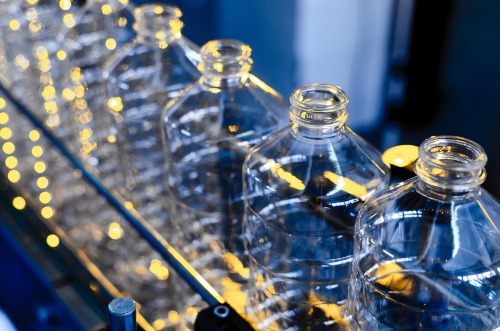
Legislation that would put a pause on permitting for plastic manufacturing facilities would have a negative impact on U.S. manufacturing and jobs, a new economic report has found.
The Break Free From Plastic Pollution Act (BFFPP) would cripple American manufacturing, drastically cut U.S. jobs and make America dependent on overseas countries for countless products, according to “Economic Implications of a Permit ‘Pause,’” according to a new report from the American Chemistry Council.
The BFFPP Act would pause the permitting of production at numerous plastic manufacturing facilities for three to five years. The pause would also halt the production of essential chemical building blocks – ethylene and propylene – that support nearly every sector of the U.S. economy.
Plastics are especially important to Pennsylvania. Plastics manufacturers and establishments involved in plastics processing, marketing, support, and captive activities directly employ nearly 54,000 people in the state. Nationally, the state is fifth in plastics industry employment, and when combined with industries dependent on plastics, the plastic industry employs an estimated 1.8 million people in the state.
The proposed legislation would put as many as 910,000 jobs nationally by 2026 and curtail as much as $413 billion in economic output.
“While a pause may sound harmless, it would shut down key manufacturing facilities that support nearly one million jobs, create untold number of essential products and make America’s supply chains more resilient,” said Joshua Baca, American Chemistry Council’s vice president of plastics. “The idea of pausing production for five years demonstrates a thorough lack of understanding of how American manufacturing works. Our ‘just-in-time’ economy relies on an uninterrupted supply chain of essential materials that would be severely disrupted by the pause prescribed in bill. The COVID-19 pandemic recently put our nation on pause – we don’t need another even more devastating shock to the economy.”
While the legislation is designed to prevent plastic waste, the BFFPP Act would only put a pause on the production of plastic and other essential materials in the U.S, making the American people and economy more dependent on foreign companies and governments.
The report also found that those lost U.S. jobs and the lost economic output could become permanent since some of those closed factories may not reopen.
“[I]t is unlikely that production would quickly return to ‘pre-pause’ levels following the end of the ‘pause.’ In the intervening years, customer industries will have shifted supply chains abroad. As a result, a share of the economic impacts presented in this report, including job losses, could become permanent,” the report said. “The U.S. would go from being a net exporter of plastic resins to a large net importer. This trade impact would make the U.S. dependent on other countries, likely China and those in the Middle East, for a wide range of critical chemicals and plastics, including plastics used in medical applications such as syringes, N95 masks, lightweight polymers, and composites for fuel efficient vehicles, electric vehicle batteries, solar panels, and wind turbines.”
As a result, the American Chemistry Council urged legislators to scrap the BFFPP Act. The legislation was introduced in February 2020 and has since been referred to the House Subcommittee on Water Resources and Environment.